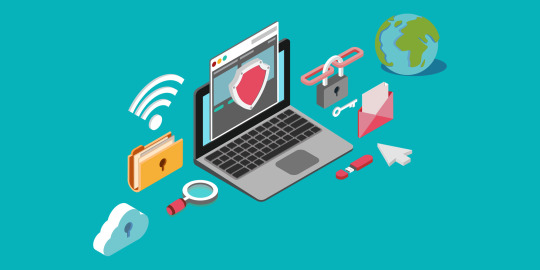Text
Internet Safety: A Guide for Everyone Who Uses the Internet and Social Media Platforms
It's important to exercise caution and keep a close eye on your every move when using the internet and social media, especially when interacting with strangers or on unfamiliar websites or with users you don't know well. We must exercise caution and safety online because the likelihood that someone's personal information will be compromised increases every time someone uses the internet. There are several things we can do to not put our information at risk when in the internet.
First is to create accounts with strong passwords and regularly update them. Your passwords must be at least ten characters long and include both upper- and lower-case letters, numbers, commas, percent signs, and other special characters. Hackers will find it challenging to access your account if your password contains these characters.
Second, keep your personal information private in social media platforms. You can do this by adjusting your privacy settings, make your selections to restrict and limit who can see your personal information. By doing this, one can prevent hackers from accessing their personal information, bank accounts, credit reports, and other assets. Not only that, but this could also prevent identity theft.
Third is to connect only to private internet connections. Avoid using free Wi-Fi in public places such as malls, coffee shops, and airports. Information profiling may be required in order to connect to these public internets, which could open the door for others to access your personal data.
Fourth, be careful when clicking links. Links are frequently used in phishing attacks to get personal information. Links can take you to a website that is waiting to infect your device with a virus. Additionally, refrain from clicking on ads because most of them can be disguised as malvertisements - that is, ads that have been contaminated with malware.
Install anti-virus programs. Anti-virus programs can shield your computers from harmful viruses like malware and spyware. Additionally, it is crucial to keep your anti-virus software up to date because thousands of new viruses are being discovered every day, along with their fellow variants.
Be selective when accepting friend requests. Accepting friend requests from strangers increases the chance that scammers or hackers will examine your profile and steal your personal data.
Be careful when sharing information online. Information that is private and sensitive should not be posted online or on social media. People might use this information against you in an effort to harass or take advantage of you, which could have a negative impact on both your personal and professional lives.
Lastly, think before you click! This sentence sends a strong message about online safety. Posting something without thinking first could give the people an opportunity to copy, alter, or display in a different context the information you post without your consent. The moment you have uploaded something to the internet is also the moment you have lost control of it.

#safety#internet safety#social media#internet#think before you post#scam alert#guidelines#virus#malware#advertisement
0 notes